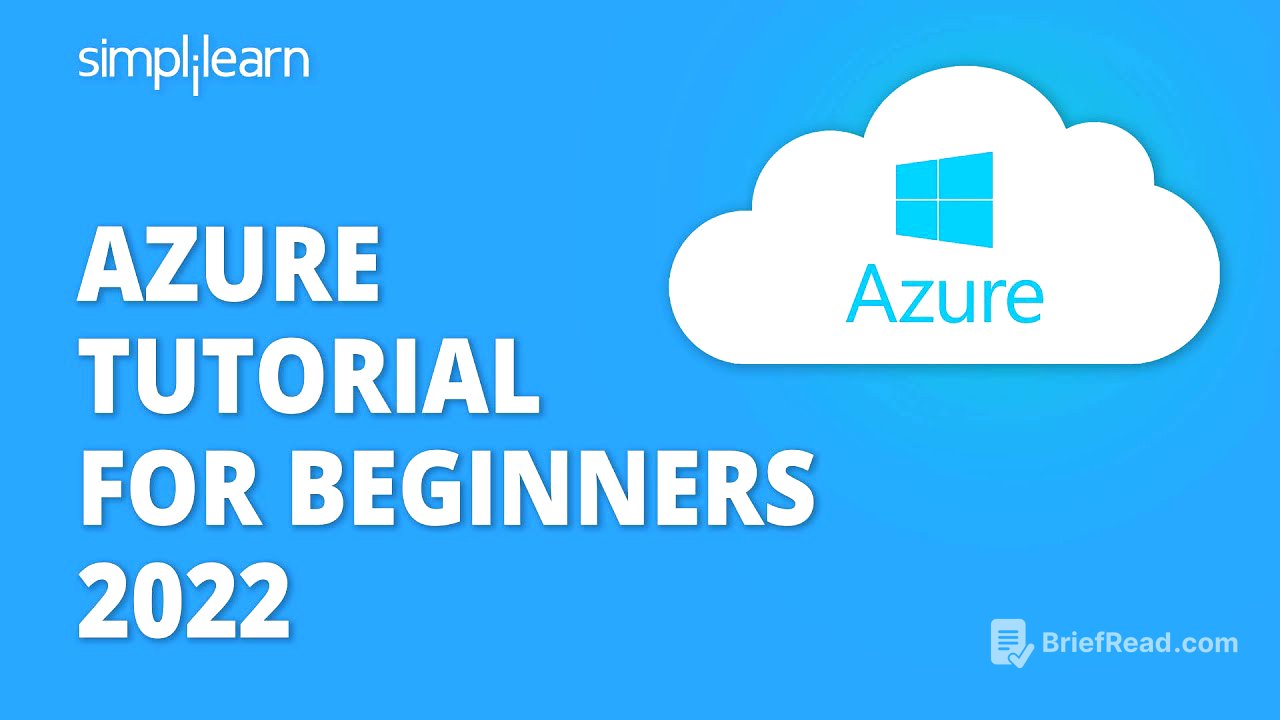TLDR;
Alright, so this video is basically an Azure tutorial for beginners. It gives you a walk-through of key Azure services and concepts. Here's the gist:
- Cloud computing explained, focusing on flexibility and cost-efficiency.
- Introduction to Microsoft Azure, its services, and how it works.
- Detailed look at compute, containers, databases, security, identity, networking, and storage services within Azure.
- A quick demo on creating a Resource Group and SQL database in Azure.
Intro to Cloud Computing and Azure [0:08]
The video kicks off with cloud computing, explaining it as delivering computing services like servers, storage, and databases over the internet. This approach offers faster innovation, flexible resources, and cost savings since you only pay for what you use. Then, it dives into Microsoft Azure, a growing set of cloud-based services for businesses, developers, and governments. Azure helps you build apps and run businesses online without the hassle of managing hardware or server software. It's become a major player for Microsoft, even surpassing Windows and Office in sales.
How Azure Works and Services Offered [2:39]
Subscribing to Azure gives you access to various services through its interface, letting you create cloud-based resources like virtual machines and databases. Azure offers different customer support plans, ranging from basic (free) to Premier (pricing not disclosed). The video then lists a bunch of Azure services like machine learning, analytics, and IoT, but focuses on compute, containers, databases, identity, security, networking, and storage.
Azure Compute Services [4:46]
Azure compute lets you run cloud-based applications on demand, providing CPUs, memory, and operating systems. You only pay for what you use. It supports various operating systems like Linux and Windows Server. Key services include:
- Virtual Machines: Software-based computer simulations where you can install and run software like a regular computer.
- Virtual Machine Scale Sets: Used to deploy and manage a group of identical virtual machines, providing auto-scaling.
- Container Instances: Azure compute resources for managing and deploying containers, which are lightweight, virtualized application environments.
- App Services: Lets you create, deploy, and scale web, mobile, and API apps on any platform.
- Functions: Serverless computing, ideal for responding to events via requests, timers, or messages.
Azure Container Services [9:22]
Containers are a virtualization system where you can run multiple containers on a single host. Azure supports Docker and offers:
- Container Instances: Quickest way to run a container without managing virtual machines.
- Container Services (Kubernetes): Helps manage, deploy, and control container operations using Kubernetes for container orchestration.
- Container Registry: Eases container development by storing and managing container images.
Azure Database Services [11:43]
Azure Database is a fully managed platform as a service, automating tasks like updating and backups. Key services include:
- Cosmos DB: A globally distributed, multi-model database service that allows you to scale throughput and storage.
- SQL Database: A relational database based on Microsoft SQL Server, offering a fast, reliable, and secure database.
- PostgreSQL: A cloud-based relational database based on the open-source PostgreSQL engine, providing high availability and straightforward pricing.
Azure Security and Identity Services [16:01]
These services are integrated, focusing on authentication and authorization. Key services:
- Security Center: Tools for monitoring and managing the security of virtual machines and cloud resources.
- Key Vault: A cloud service for securely storing and accessing secrets like API keys and passwords.
- Active Directory (AD): A cloud-based identity and access management service for employees to sign in and access resources.
Azure Networking Services [19:01]
Azure networking provides scalability, performance, and security for workloads. Key services:
- Virtual Network: Allows Azure services to connect with each other, internet users, and on-premises computers.
- VPN Gateway: Provides connectivity for site-to-site, point-to-site, and network-to-network connections.
- Express Route: Lets you expand on-premises networks into the Microsoft cloud over a private connection, offering reliability and speed.
Azure Storage Services [22:36]
Azure storage is a cloud storage platform for modern data storage scenarios. Key services:
- Blob Storage: For storing unstructured data like text, photos, and videos.
- Table Storage: Stores large volumes of structured data in a NoSQL data store.
- Queue Storage: Stores messages for asynchronous processing.
- File Storage: Provides fully managed cloud files that can be accessed via SMB or NFS protocols.
Azure Advantages and Demo [26:06]
Azure's PaaS gives developers the tools to quickly create and deploy cloud services. It's compatible with .NET, has built-in security, and supports hybrid apps. Plus, companies with Microsoft Enterprise Agreements can get discounts. The video concludes with a demo showing how to create a Resource Group, a web app, and an SQL database in Azure.









